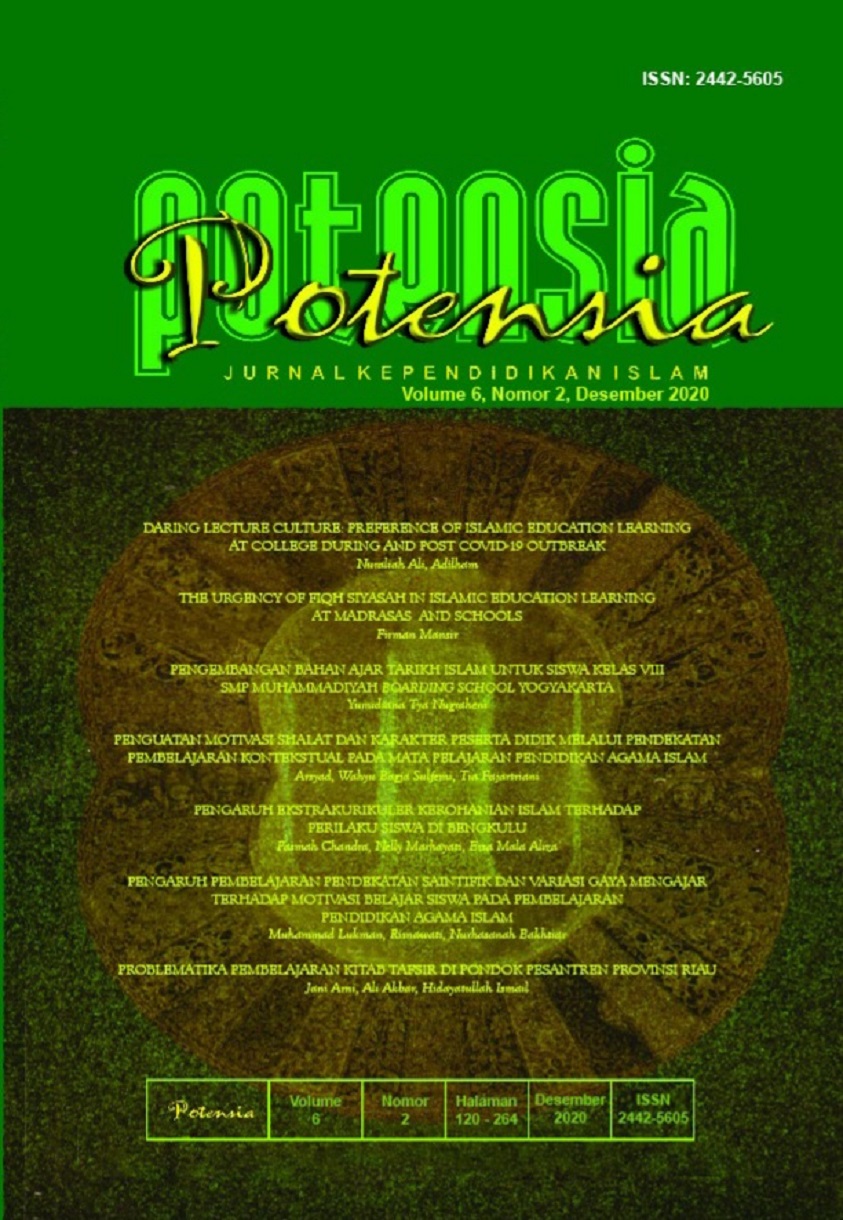DARING LECTURE CULTURE: PREFERENCE OF ISLAMIC EDUCATION LEARNING AT COLLEGE DURING AND POST COVID-19 OUTBREAK
DOI:
https://doi.org/10.24014/potensia.v6i2.10504Keywords:
lecture culture, daring, e-learning, Covid-19Abstract
Concerning the pandemic COVID-19, which was designated as a national disaster, the Ministry of Education and Culture issued a policy that every unit of education should transform face-to-eye learning into distance learning. In the context of Islamic education in college, the policy forced all actors of Islamic education to change the culture or customs of learning into distance-learning or online. This qualitative descriptive research seeks to describe systematically, scientifically, and factual descriptions, challenges, and strategies of ICT optimization/ utilization on each component of the lecture as a learning solution during and after the COVID-19 pandemic. The data collection methods used in this study are document content with data analysis using latent content analysis. The challenges faced in building a culture of online lectures are unqualified infrastructure, different socio-economic factors, the unpreparedness of human resources (resistance to change, attitudes and confidence, minimal digital skills), and resource accessibility. Constructing the culture of online lectures on Islamic education needs to pay attention to several aspects such as expected outcomes, required financing, responsibilities, resource requirements, and evaluation.Downloads
Published
2020-12-26
How to Cite
Ali, N., & Adilham, A. (2020). DARING LECTURE CULTURE: PREFERENCE OF ISLAMIC EDUCATION LEARNING AT COLLEGE DURING AND POST COVID-19 OUTBREAK. POTENSIA: Jurnal Kependidikan Islam, 6(2), 120–141. https://doi.org/10.24014/potensia.v6i2.10504
Issue
Section
Articles
License
POTENSIA: Jurnal Kependidikan Islam operates an Open Access policy under a Creative Commons Attribution 4.0 International License. Authors who publish with this journal agree to the following terms:
- Authors retain copyright and grant the journal right of first publication with the work simultaneously licensed under a Creative Commons Attribution 4.0 International License that allows others to share the work with an acknowledgement of the work's authorship and initial publication in this journal.
- Authors are able to enter into separate, additional contractual arrangements for the non-exclusive distribution of the journal's published version of the work (e.g., post it to an institutional repository or publish it in a book), with an acknowledgement of its initial publication in this journal.
- Authors are permitted and encouraged to post their work online (e.g., in institutional repositories or on their website) prior to and during the submission process, as it can lead to productive exchanges, as well as earlier and greater citation of published work.

